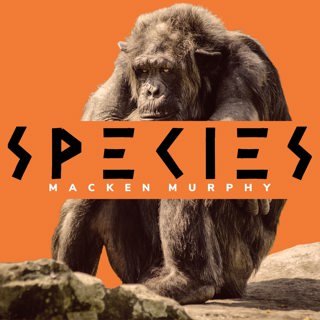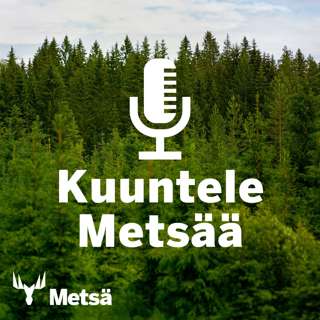
Golden Jackal
In this episode, Macken celebrates America's independence by discussing obscene Russian experiments, a world without water, as well as the ramifications of cattle being sacred in some parts of India. All of this, incredibly, is totally relevant to the golden jackal. Prepare for an episode full of stories, anecdotes, and information about hybridization, regurgitation, and domestication. If this show adds value to your week, please consider becoming a weekly donor. Bibliography
8 Heinä 201921min

Human: Tyus Williams, Wildlife Biologist
In this episode, Macken talks to wildlife biologist Tyus D. Williams. During this long and wide-ranging conversation, they covered some of the following topics: The ethics of mosquito sterilization, conservation, pseudonaturalism, scientific contrarianism, Tyus's jaguar research, and tigers that eat bears. Tyus is a researcher and science communicator whose work with jaguars has been published in National Geographic. You can interact with him on his twitter, @ScienceWithTyus, and learn from his #SciQFriday. If you want to thank him for coming on the show, you can buy him a cup of coffee.
5 Heinä 20191h 30min

Horseshoe Crab
What has 10 eyes, 12 legs, a spike for a tail, a tube-shaped heart, and blue blood worth $60,000 a gallon? A horseshoe crab! This animal is ancient, they are even older than trees, and today you are going to learn all about them. On this episode, Macken takes you on a tour of the horseshoe crab's anatomy, and tells you all the weird things you never knew about the Atlantic horseshoe crab. Bibliography: https://docs.google.com/document/d/1vSYTC0X_HH0YT6vTWrWUhqenexQmbOM8AlgADzz4eS8/edit?usp=sharing
1 Heinä 201927min

Fairy Penguin
Come listen to the weirdest conservation story of all time: The story of a primate named "Swampy Marsh," who decided to train a dog to defend blue penguins from foxes. Seriously. This show will teach you about the immense challenges inherent to being a tiny penguin, and will tell you all the fun (and not-so-fun) facts about fairy penguins. Along the way, you will learn about chimpanzee warfare and the expression of violence in humans and penguins. Bibliography: https://docs.google.com/document/d/1iwfRG2_3yAn9arupsnxazlUcOTjVKDuucePFjaM3YM4/edit?usp=sharing
24 Kesä 201921min

Tuna
Tuna are incredibly underestimated animals. We usually think of them as ingredients, instead of creatures. In reality, they are marvelous predators; on par with lions, sharks, and other creatures we generally respect. Today we are going to talk about an animal that is extreme in every way... Extreme speed, extreme size, and extreme price: the Atlantic bluefin tuna. Find out why the Atlantic bluefin tuna is going extinct, and what you can do to help them, all on this episode of Species. Bibliography: https://docs.google.com/document/d/1LBGD6M-1LeIrNwltpBlBXiNcU0OYQixcRcaUCr--FDc/edit?usp=sharing
17 Kesä 201919min

Earthworm
Can an earthworm survive being cut in half? Do they re-grow both ends? Is it true that worms can reproduce with themselves? Was Charles Darwin obsessed with earthworms, and did he scientifically determine their favorite food? Do worms have brains? What about hearts? Why do they carry leaves back to their dens? Find out all the answers on this episode of Species. Bibliography: https://docs.google.com/document/d/1hGhOUKfhp1q9F5M5y5X6pbL9ddqWlB1-bBogYw3aV1U/edit?usp=sharing
3 Kesä 201918min

Flamingo
Why are flamingos pink? Why do they stand on one leg? Do flamingos have teeth? Do flamingos know how to dance? Find out the surprising answers to all these questions and more, hear two weird conservation stories, and learn all about the American flamingo on this episode of Species. Bibliography: https://docs.google.com/document/d/1A5aZn6YhKxoQfvSSsHRFpsmBMRKYf0I5gfZxT-88sIo/edit?usp=sharing
27 Touko 201927min

Oarfish
The Japanese nickname for the oarfish is "ryugu no tsukai," which translates to English as "messenger from the sea god's palace." In the traditional Japanese mythos, this animal is a warning: They are a sign that a tsunami is coming. In this episode, we explore the possibility that this seemingly absurd theory is true, and we talk all about what is perhaps the longest fish in the sea. Bibliography: https://docs.google.com/document/d/1iuv3w-7s1yhB6kzve_920EnQhyt5gC1avdLgHfkmvzY/edit?usp=sharing
20 Touko 201922min





















